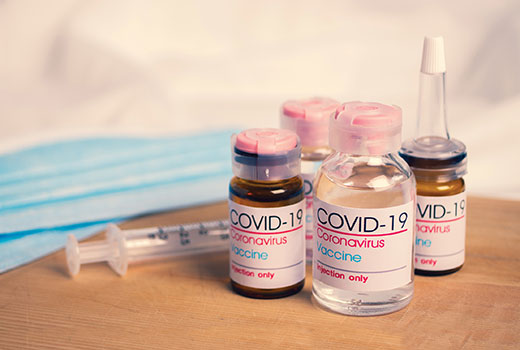With approximately 300,000 COVID-19 deaths in 2020, the news of vaccines that can protect people from the virus brings hope to millions of people across the nation and around the world. The largest and most comprehensive vaccination deployment in the history of the United States began Dec. 14.
First to receive FDA approval was drug giant Pfizer and its partner BioNTech, followed a few days later by Moderna Inc. Both vaccines require one shot, followed by a second shot three weeks later. Officials were hopeful the two companies could provide more than 20 million doses by the end of 2020.
A third company, Johnson and Johnson, hopes to be approved by the FDA and begin distributing its one-shot vaccine by February. AstraZeneca is also producing a vaccine, which could be approved in the first quarter of 2021.
South Carolina Gov. Henry McMaster tweeted, “We are witnessing American ingenuity at its finest” as the state began distribution of the Pfizer vaccine. South Carolina was expected to receive 300,000 or more doses of the vaccine by the end of 2020.
Dr. Anthony Fauci, head of the National Institute of Allergy and Infectious Diseases, said COVID-19 is “possibly the most unusual virus any of us have ever dealt with.” He reported that 40 percent of people have the virus without any symptoms, while 80 percent of those who have symptoms are mild to moderate and require no medical intervention. However, 20 to 25 percent are “devastated by it.”
He predicted that the country could be back to near normal by fall of 2021, if 75 to 80 percent of the population is vaccinated. In a poll conducted by the Associated Press-NORC Center for Public Health Research, only about half of Americans indicated they wanted to be vaccinated.
Even after being vaccinated, healthcare leaders are stressing that practices such as social distancing, frequent hand washing and wearing masks should continue.
After frontline medical workers and those at risk are vaccinated, Fauci was hopeful that people with no underlying conditions would be able to get the vaccine around April. A medical doctor who was one of the first to be vaccinated said he did not feel like he got a vaccine but a shot of hope.

